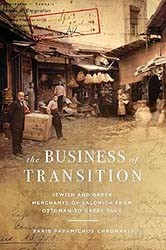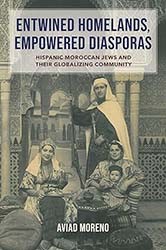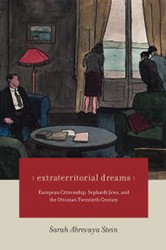By
– September 1, 2011
This is an insightful and readable examination of the religious and intellectual heritage of the Sephardim.
Many people regard the Sephardim as those Jews who trace their heritage and tradition back to the Iberian peninsula prior to the Expulsion at the end of the 15th century. Toledano, however, argues that Sephardic culture originated not in Spain, but in Baghdad and North Africa. He asserts that Sephardim cannot be defined using geographic, ethnic, or linguistic boundaries but must be examined on cultural terms and should include all those people “who share and cherish the Sephardic tradition and heritage as it was transmitted from one generation to another.”
With this in mind, Toledano describes some of the most notable achievements of Sephardic culture. He explains, for example, how medieval Jewish philosophy originated in the writings of Saadia Gaon, and blossomed until it reached its zenith in the works of Maimonides (particularly in his Guide for the Perplexed). He then demonstrates the critical role played by the Sephardim in the codification of Jewish law (especially in Maimonides’ Mishneh Torah and Josef Caro’s Shulhan Aruk), and illustrates the tremendous heights reached by Sephardic poets in Muslim Spain.
Toledano calls attention to the close connection between Hebrew poetry and Biblical exegesis in medieval Spain and describes how they flourished from the beginning of the 10th century. Particularly notable is the work of Yehudah Halevi, who distinguished himself not only in his philosophical writings, but in poetry that spanned the spectrum from love to poems in praise of Zion. Toledano claims that through Halevi’s writings and practices, he proved himself to be the first Zionist.
Toledano has presented an authoritative account of the glorious Sephardic legacy from an interesting perspective.
Many people regard the Sephardim as those Jews who trace their heritage and tradition back to the Iberian peninsula prior to the Expulsion at the end of the 15th century. Toledano, however, argues that Sephardic culture originated not in Spain, but in Baghdad and North Africa. He asserts that Sephardim cannot be defined using geographic, ethnic, or linguistic boundaries but must be examined on cultural terms and should include all those people “who share and cherish the Sephardic tradition and heritage as it was transmitted from one generation to another.”
With this in mind, Toledano describes some of the most notable achievements of Sephardic culture. He explains, for example, how medieval Jewish philosophy originated in the writings of Saadia Gaon, and blossomed until it reached its zenith in the works of Maimonides (particularly in his Guide for the Perplexed). He then demonstrates the critical role played by the Sephardim in the codification of Jewish law (especially in Maimonides’ Mishneh Torah and Josef Caro’s Shulhan Aruk), and illustrates the tremendous heights reached by Sephardic poets in Muslim Spain.
Toledano calls attention to the close connection between Hebrew poetry and Biblical exegesis in medieval Spain and describes how they flourished from the beginning of the 10th century. Particularly notable is the work of Yehudah Halevi, who distinguished himself not only in his philosophical writings, but in poetry that spanned the spectrum from love to poems in praise of Zion. Toledano claims that through Halevi’s writings and practices, he proved himself to be the first Zionist.
Toledano has presented an authoritative account of the glorious Sephardic legacy from an interesting perspective.
Randall Belinfante has served as the Librarian of the American Sephardi Federation for more than 13 years. He has taken a tiny collection of 200 books and built an assemblage of over 10,000 items. Mr. Belinfante holds degrees in various aspects of Jewish studies, and during his tenure at ASF, he has investigated a variety of topics, presenting papers on such diverse topics as the Mizrahi Jews driven from their homes in Islamic countries and the crypto-Jewish Mashhadis of Iran. He has also written many book reviews on books of Sephardi / Mizrahi interest.





